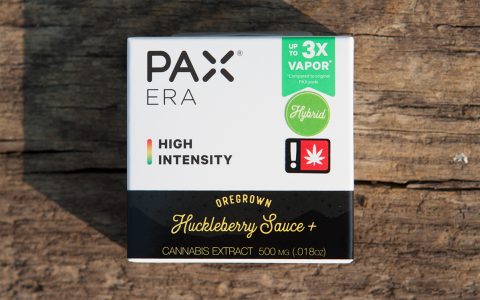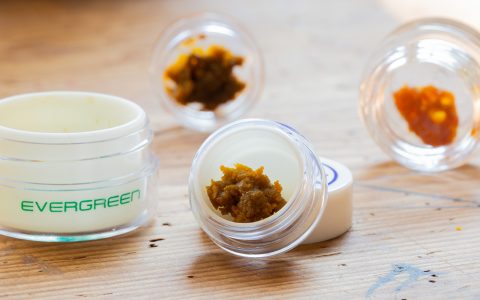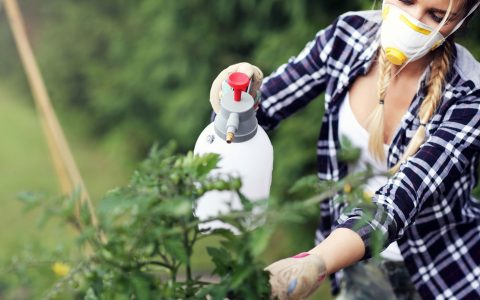Coming from Dallas, I knew there would be a lot to learn a lot about cannabis when I moved to Washington. Sure, I was already well-versed in flower and various strains, but extracts? I know nothing, Jon Snow. To correct that, I toured the lab of Seattle cannabis extractor Heylo. Here are five things I took away from the visit.
1. There are only four PAX Pod partners in Washington (so far).
The PAX Era is a really dope vaping system that offers personalized settings like temperature control and pre-set dosages for beginners. Only problem is the Era oil pods can be a little hard to find. Why is that, you might ask?
In Washington, PAX only partners with four extract companies on their pods: Heylo, Dabstract, LeafWerx, and Avitas. So if you’re looking for a PAX Era pod, you’ll have to find dispensaries that sell these brands.
Try checking these menus for PAX pod selections:
2. The Cannastamp might change the cannabis packaging game.
The Cannastamp is a terpene-identifying feature on Heylo boxes that could expand to all packaging within the Washington cannabis industry. Basically, it’s a color wheel that indicates which terpenes are most prevalent within a product/strain. Once you learn which terpenes act best with your body or provide the effect you’re looking for, the Cannastamp could becoming the easiest way to know which strains you want to buy.
3. Most extraction labs use trim to create their concentrates.
Not all extracts are created equal. Most labs make use of cannabis trim and leaves for their extracts, but some companies like Heylo use full bud as source material. This ensures that the oil retains as many qualities from the original strain as possible, which is truly what provides consumers with the best flavor, effects, and overall experience. This approach to production is much more expensive, though.
4. There’s a difference between processing and growing licenses in Washington.
Processors, like Heylo, can take in flower from growers and turn it into any product on the shelf. However they can’t grow flower themselves. On the reverse, growers can cultivate flower, but they can’t process or package it. For that reason, most growers also have processing licenses. But for those who don’t, there are companies who will take care of it for them—and vice versa.
5. Washington doesn’t require growers to provide pesticide information.
Plenty of growers use pesticides to ward off pests, which can make the cannabis unhealthy to smoke. Mindful Washington consumers are constantly looking for pesticide-free cannabis to enjoy; the only problem is that the state doesn’t require growers to provide pesticide testing information.
Some will use pesticides during the plant’s vegetative cycle, but claim their products are pesticide-free because the plants were young when the pesticides were applied. So if you’re looking for true pesticide-free products, ask a seasoned budtender to point you in the right direction.





